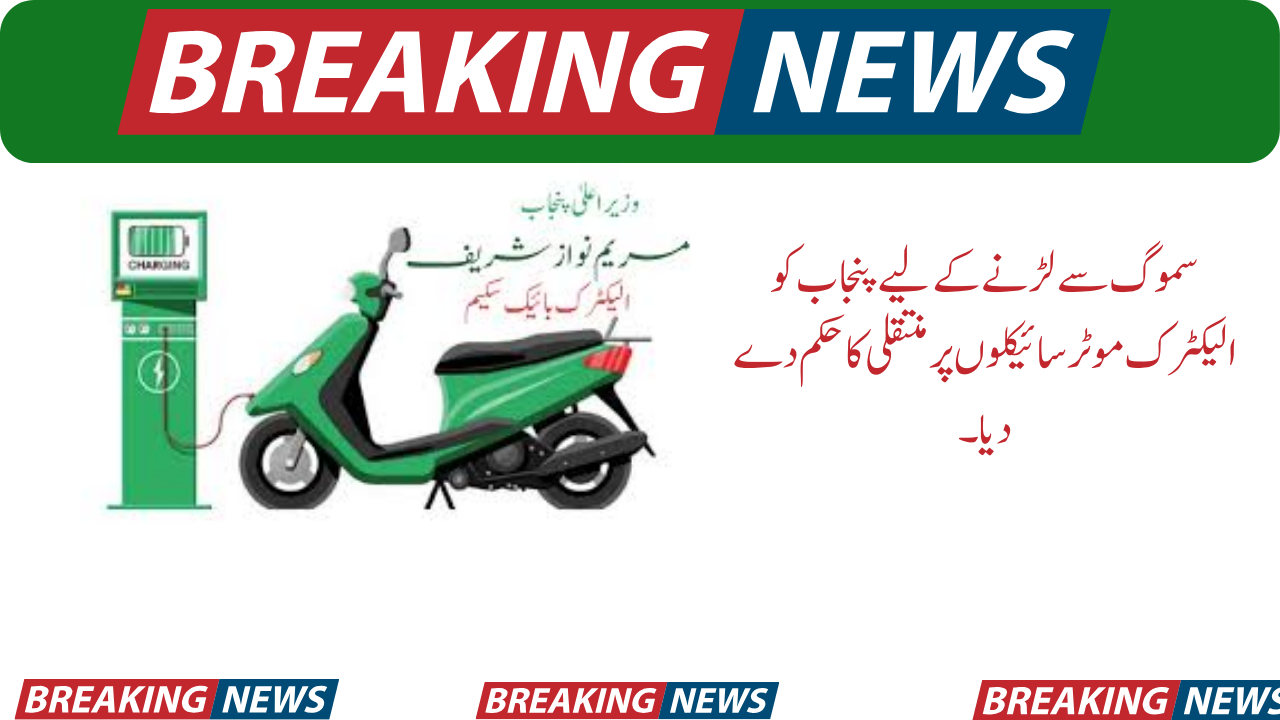Punjab Government to Shift Motorcycles to Electric Vehicles
To combat worsening air quality in Punjab, the Lahore High Court (LHC) has directed the provincial government to transition motorcycles from petrol engines to battery-powered electric vehicles (EVs). This significant decision, aimed at addressing Punjab’s smog crisis, was announced during a recent hearing presided over by Justice Shahid Karim. The court emphasized the urgency of creating robust policies to regulate small and medium-sized public transport systems in Lahore and stressed stringent monitoring of motorcycles.
also read Shrimp Farming Internship ProgramSchema:
The case, which primarily focuses on controlling smog, has been adjourned until November 20th, leaving the government with the responsibility to expedite actionable measures. The ruling reflects a growing recognition of the environmental and public health challenges posed by air pollution in one of Pakistan’s most populous provinces.
Air Pollution in Punjab: Key Findings
The LHC’s directive aligns with a recent report published by the Punjab Urban Unit, which highlights the alarming state of air quality in the province. According to the report, vehicles emitting excessive smoke are the leading contributors to air pollution, accounting for a staggering 83.15% of the total pollution. The findings point to aging and poorly maintained vehicles as the primary culprits, overshadowing other sources of environmental degradation.
These statistics underline the urgent need for systematic measures, including transitioning to cleaner transport alternatives and enforcing stricter vehicle maintenance standards.
also read Solving BISP Error Code 938Schema:
Smog Control Measures and Policy Recommendations
Justice Shahid Karim emphasized the importance of devising a comprehensive policy to tackle Lahore’s rising air pollution levels. Key recommendations from the court and environmental experts include:
Promoting Electric Mobility: Encouraging the adoption of electric motorcycles to reduce emissions.
Enhanced Vehicle Monitoring: Rigorous checks on smoke-emitting vehicles, particularly two-wheelers.
Upgrading Public Transport: Developing a sustainable, eco-friendly transport infrastructure for small and medium-sized public vehicles.
These measures, if implemented effectively, could lead to a noticeable improvement in Punjab’s air quality and help mitigate health risks associated with prolonged exposure to
Broader Implications of Electric Vehicle Adoption
Shifting to electric motorcycles is not just an environmental imperative but also offers several socio-economic benefits:
1. Reduced Fuel Dependency: Transitioning to EVs would lessen the province’s reliance on imported fossil fuels, saving costs and boosting energy security.
2. Lower Operating Costs: EVs require less maintenance and have lower running costs compared to petrol-powered vehicles, benefiting consumers in the long run.
3. Health Benefits: Cleaner air would reduce respiratory illnesses and other health issues caused by pollution.
However, the shift to electric mobility will require significant investment in charging infrastructure, subsidies for EV adoption, and public awareness campaigns to promote cleaner transport options.
Quick Details
The Path Forward
The Punjab government’s compliance with the LHC’s orders will be crucial in shaping a cleaner, greener future for the province. Effective policy implementation, backed by data-driven insights and public cooperation, could transform Lahore’s air quality and set a precedent for sustainable urban development across Pakistan.
As air pollution continues to threaten public health and the environment, adopting electric motorcycles marks a vital step toward reducing emissions and improving the quality of life for millions in Punjab.


